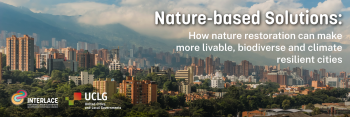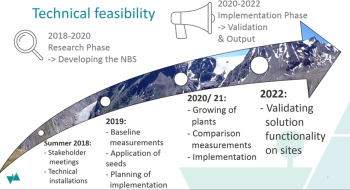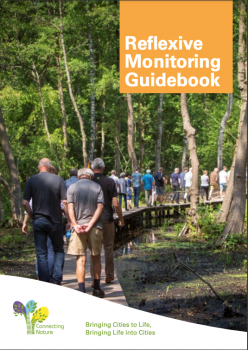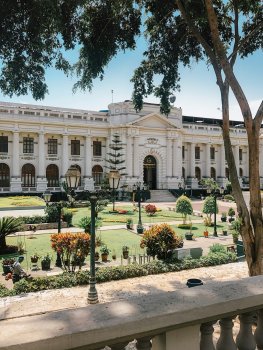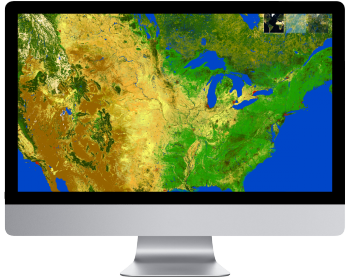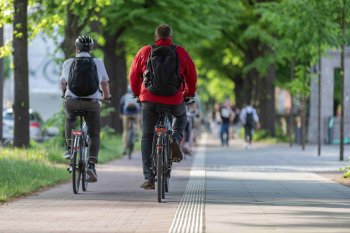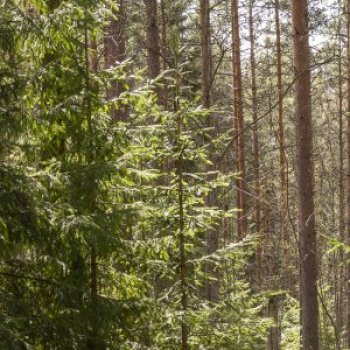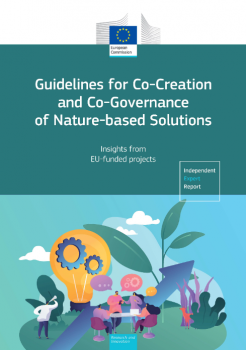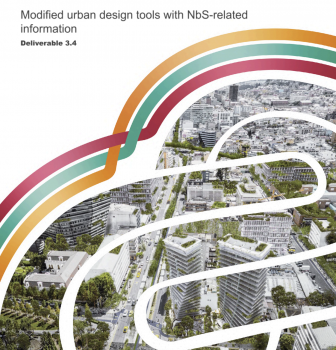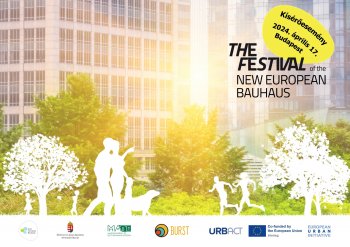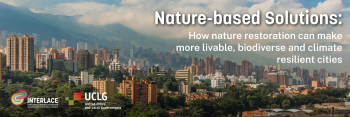Vegetation for urban green air quality plans
Are you aware of the benefits that urban vegetation can produce to lowering temperature and improving air quality? Do you remember how you missed being in contact with nature during the lockdown? The book presents how the Life VEG-GAP project consortium have deepened the links between vegetation
INTERLACE MOOC on Nature-based Solutions: (1) INTRODUCTION to urban nature-based solutions as a tool to address global challenges.
Urban areas across the globe are facing unprecedented challenges—pollution, climate change, urban sprawl—and traditional solutions are falling short. The INTERLACE project’s Massive Open Online Course showcases how nature-based solutions offer a promising approach to help create resilient,
Kaunertal Valley field study - microbial assisted local seed mixtures to mitigate erosion on slopes
This video contains a visual explanation of the research work in Kaunertal Valley in the framework of the EU horizon 2020 PHUSICOS Project (PHUSICOS – ‘according to nature' solutions to reduce risks in mountain landscapes). Goal is to develop a height adapted and microbial assisted local seed
Reflexive Monitoring Guidebook
Reflexive monitoring is an evaluation method that gives urban practitioners insight into the progress of their project in real time. It helps them evaluate day- to-day activities and to respond to them while considering the bigger picture.This is especially helpful when addressing the complex
CONEXUS Policy Brief 4 - Nature-based strategies to improve livability and enhance ecosystems in vulnerable areas
Many Latin American cities face similar sustainability challenges due to informal urban expansion processes in environmentally vulnerable areas, resulting in increased social and ecological vulnerabilities. This policy brief presents the experience of the Independencia Green Belt in Lima, Peru. It
Repository of NbS guidance material
The NbS Guidance Repository is a collection of guides, handbooks, manuals, toolboxes, and other guidance materials. These resources are specifically designed to facilitate knowledge brokering and capacity-building on Nature-based Solutions (NbS) for a diverse group of non-academic actors. The
Terms of Reference for Urban Well-being Labs and associated local task forces in each of the cultivating cities
This ToR document refers to the intended development of Urban Well-Being Labs and the further establishment of a Local Task Force in each of the six participating cities. In the context of this ToR document, a focus is placed on the following key factors: • Listing of all definitions of
OneMap from Ecometrica
A diverse business with global operations and land-based assets faces a number of reporting challenges. Management teams need fast access to data that is locked away in departmental silos, inaccessible and unusable. Even with close links to these departments, gathering all the information needed to
Science at ISGlobal
The 1000 cities ranking is a project of the Barcelona Institute for Global Health (ISGlobal), one of the centres in the PRBB. It’s aim is to estimate the impact of air quality, noise, temperature and proximity to green spaces on the health of people living in Europe's largest cities. Learn
- Document
Assessment of the drudgery of work during the planting phase
Plantation management methods that meet the social and environmental expectations : identifying the phases of work carried out and to assess the arduousness of each of them, in order to target possible recommendations
Report on the Launch Event of TeAM HUb - the Hungarian Network Nature Hub for Nature-based solutions
This report covers the launch event of TeAM HUb1 - the Hungarian Network Nature Hub for Nature-based solutions took place at the Budapest Congress Centre on 18 October 2022.
- Video
PHUSICOS: Living Lab en Erill la Vall (Catalunya, España)
Do you know about the problem that the population of Erill la Vall in Catalonia faces? Are you interested in knowing more? Here you will be able to view explanations from PHUSICOS project experts and images about this erosive problem and the nature-based solutions designed to respond to it. The
Common Action Plan on clustering activities D1.3
This deliverable presents a summary of planned joint activities among the cluster of projects funded under the EU Horizon call H2020 SC5-14-2019 (Visionary and integrated solutions to improve well-being and health in cities).
Green Cities Framework (GCF) Handbook
Cities of all sizes and types can develop effective strategies for nature-based solutions, allowing them to create innovative and inspiring ways to tackle major urban challenges, such as flooding and heat stress. Embedding nature-based solutions in this way in long-term city planning, development
Comprehensive Framework for NbS Assessment
A product of Workpackage 4 of the EU-H2020 project PHUSICOS is a comprehensive framework to verify the performances of NBSs in risk management processes from both technical and socio-economic points of view. The comprehensive framework assesses the beneficial role of NBSs in ecosystem services,
Guidelines for co-creation and co-governance of nature-based solutions
This report analyses co-creation and co-governance approaches for Nature Based Solutions (NbS). Each project represents different ways in co-designing, co-developing, co-implementing and co-monitoring NbS that are being deployed in diverse European contexts. The analysis presents best practices
INTERLACE Modified urban design tools with NbS-related information
In the context of rapid urbanization and environmental degradation, the integration of nature-based solutions (NbS) into urban design has emerged as a pivotal strategy for fostering sustainable urban environments. This approach not only addresses ecological challenges but also enhances the quality
ÁLTALÁNOS: Ember- és természetközpontú településfejlesztés - URBACT Konferencia és Workshop
2024. április 17-én került sor az Építési és Közlekedési Minisztérium, a Magyar Agrár- és Élettudományi Egyetem, valamint a TeAM HUb-ot alapító és koordináló BURST Nonprofit Kft. társzervezésében az Új Európai Bauhaus Fesztivál magyarországi kísérőrendezvényére Budapesten. A rendezvényen kiemelt
Forêt de Capet case study
Presentación del estudio de caso PHUSICOS : Forêt de Capet / Présentation de l'étude de cas PHUSICOS : Forêt de Capet
INTERLACE MOOC on Nature-based Solutions: (2) CITIZEN ENGAGEMENT as a tool to build local awareness and participation around NbS
Urban areas across the globe are facing unprecedented challenges—pollution, climate change, urban sprawl—and traditional solutions are falling short. The INTERLACE project’s Massive Open Online Course showcases how nature-based solutions offer a promising approach to help create resilient,
- ‹ previous
- 7 of 20
- next ›


